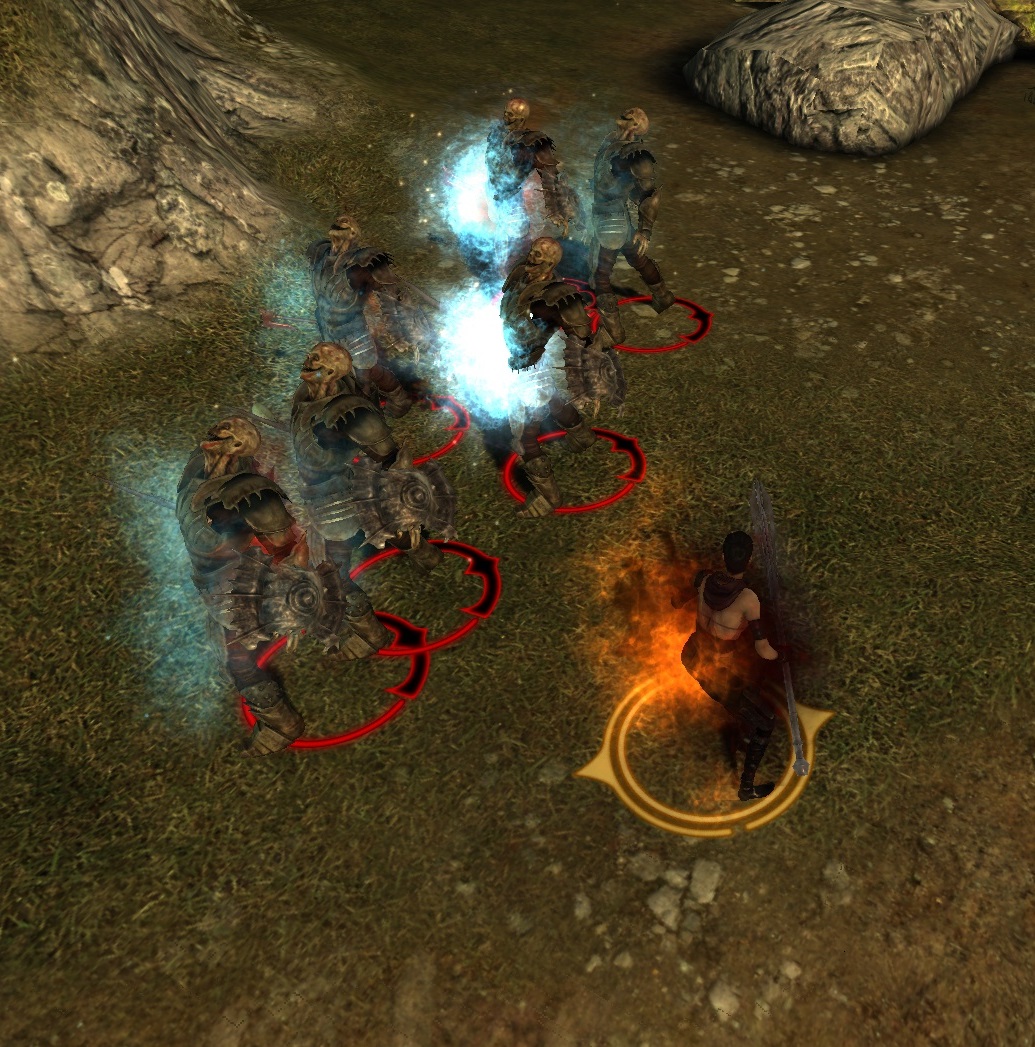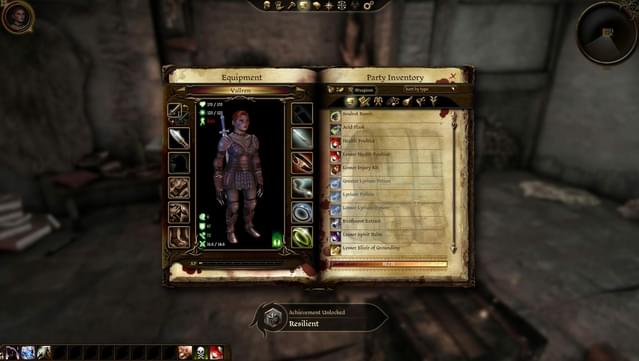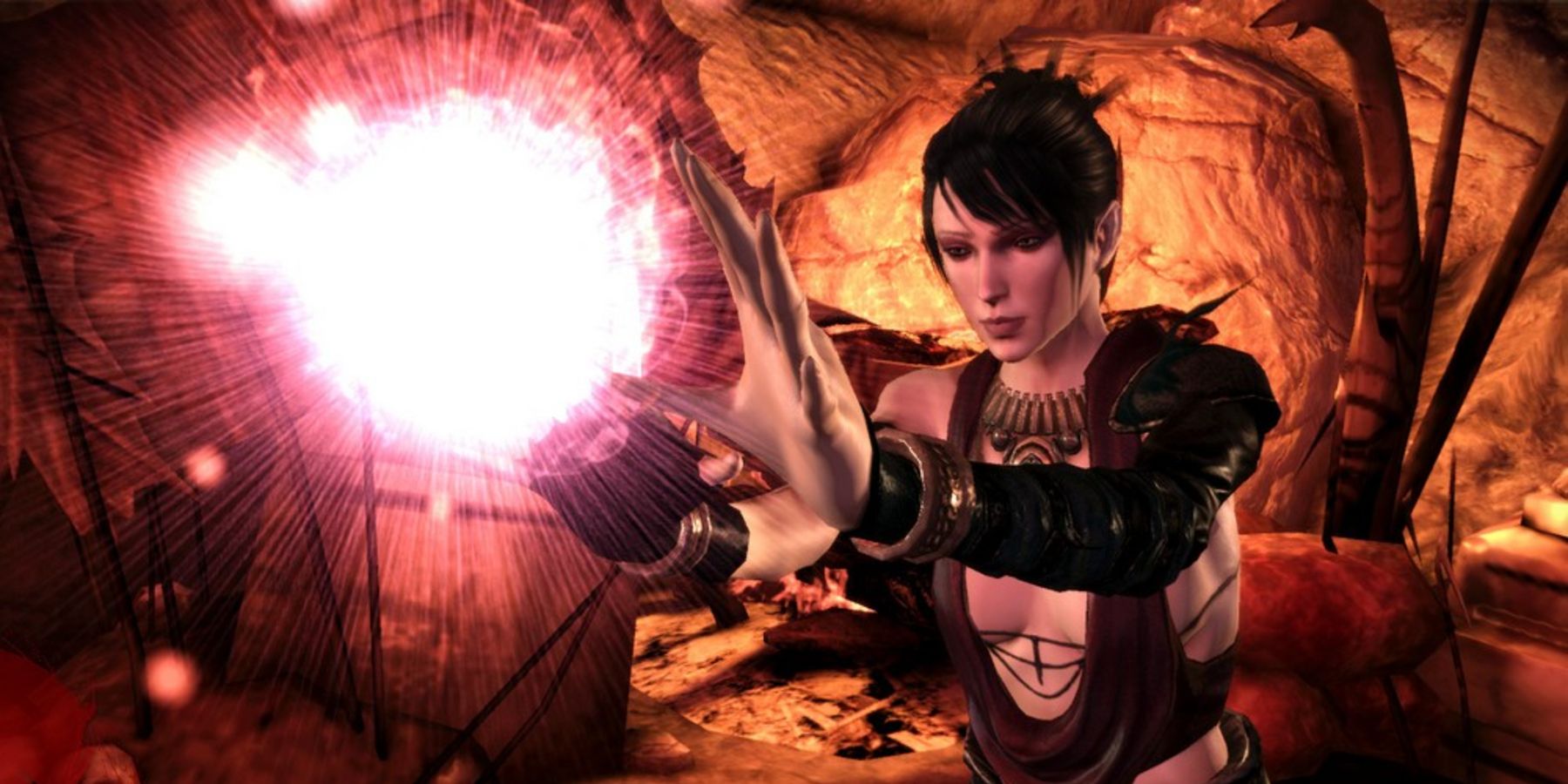

That sense of instilled power and command is better suited to a warrior. For example, a warrior Cousland fits the narrative of a nobly born child, coached from a young age to either rule their family estate or serve as a commander in the army. Depending on the race and origin you choose, it would make more sense for that player to be a warrior.
As a non-combat point, having a warrior as your playable character can make more sense from a roleplaying perspective. It's hard to ruin a warrior character with improper stat assignment. Beyond that, slight additions to cunning or dexterity can help with damage and coercing characters with unique dialogue options. Saving some for constitution to improve your health pool or willpower for a stamina increase never hurts too. It mainly consists of dumping as many points as you can into strength to unlock heavy armour types. It's hard to ruin a warrior through improper stat assignment. This helps make sure that your rogues and mages are pumping out as much damage as possible because they can spend less time retreating from melee or being dead on the ground. Warriors serve as a target dummy to help protect your delicate party members. On higher difficulties, they will need more micro-management, but they are a capable class that doesn't need to be babysat to avoid death. Unless you're being intentionally foolish or haven't built them around survivability, your warriors are generally safe to be left alone to do what they do. Your chances of dying as a warrior are slim to none. Despite these points, warriors have plenty of strengths to make them a worthy choice to play. Without the focus on taunting and protecting the party, a warrior suited to dealing damage can be just as enjoyable as any other class. It's also worth noting that this issue eases up if you play a warrior that doesn't serve as a tank. Because of this, warriors may not be a good fit for those looking for more high action, high mobility fights. As a result, you're likely to spend most of your gameplay auto-attacking while you wait for your abilities to come off cooldown. With most of your skills as passives or sustained, the options for active skill usage are limited. Unfortunately, warriors can be notorious for boring gameplay, and Dragon Age: Origin is no exception to this rule. The latter options are for the warrior that prefers their blows to hurt rather than protect. The former is for tanking due to the added protection gained from a shield. In Dragon Age Origins, warriors can train to use a sword & shield, dual-wielding or two-handed weapons. Sometimes we need to hide behind our shields. However, they can also become fearsome damage dealers, utilizing two-handed weapons to decimate adversaries. 
Typically, warriors are used as tanks to help protect your delicate party members. The staunch defender of the party, warriors, rely on heavy armour, high strength, and a deep health pool to weather the attacks of your enemies.

Warriors are a classic class type found in any RPG game. By the time you've finished reading, you'll have a clear and more informed idea of what class is best for you. This article looks at each class in an overview and considers its strengths and weaknesses. Luckily, we are here to help you make that decision. But, first, you need to ask yourself: do you want to play a chunk of pure muscle that can stand against anything, even dragons? Are you a lithe and sneaky character who strikes from the shadows? Or are you seeking the power fantasy that comes from having magic at your fingertips? The answers to these questions shape how you experience and enjoy Dragon Age: Origins. It can be an intimidating choice and one you don't want to regret.

At the beginning of a game, one of your first big decisions (besides your appearance) is your class.








 0 kommentar(er)
0 kommentar(er)
